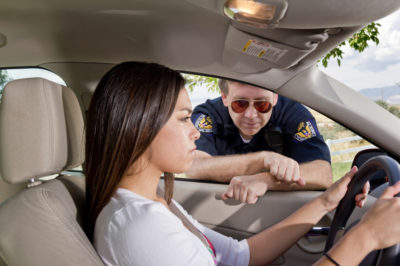Average Americans often have a very hard time talking to the police and dealing with law enforcement in general. The reason for this is that most Americans don’t encounter or deal with the police that much.
Many people get themselves into trouble and sometimes arrested or assaulted by officers, simply because they don’t know how to deal with them. Ironically enough, law-abiding citizens often have a much harder time dealing with the police than criminals do, simply because they don’t understand how to talk to officers.
Fortunately, most encounters between police and citizens end peacefully. Unfortunately, some don’t — usually because somebody does something that provokes an incident. The good news is that most confrontations between police and citizens can be avoided with a little common sense.
Encounters with the Police
There are a few things that you should realize from the beginning when dealing with a police officer in an official manner:
- The police officer is in charge. Yes, the police are technically public servants, but on the street in the real world, the cop is in charge. Keep that in mind and act that way. If a police officer tells you to do something, do it unless it seems blatantly wrong to you. Enduring a few minutes of discomfort — even humiliation — is better than getting arrested.
- Police officers often think individuals they encounter are potential threats. Don’t act in a threatening manner or make any sudden movements. Remember, the police officer has a gun and sometimes other weapons, such as pepper spray or a nightstick.
- Police officers are human beings with a very difficult and dangerous job. Remember the Golden Rule: “Do unto others as you would have them do unto you.” Treat the officer with respect, kindness and courtesy, and don’t insult him or her or talk back. Police, like everybody else, often respond negatively to rudeness, arrogance or insults.
Bombshell New Book Reveals… How To Survive The Coming Martial Law In America
What to do When a Police Officer asks you a Question
The first and most important thing to do when a law officer comes up to you and asks a question is not to panic. Don’t assume that the police are collecting evidence or accusing you of a crime when they come up to you. Instead, don’t assume anything. Listen, ask questions, and try to get as much information as possible.
If possible, answer the police officer’s questions unless they seem unreasonable or unusual. If it sounds as if you’re being investigated for a crime, ask about it. Yes, you have a right not to talk to the police, but remember, the vast amount of encounters between you and the police are routine matters that can be cleared up with a few questions. If you remain polite and respectful, you should get through the situation just fine.
Dealing with Police Questions
Don’t try lecturing police officers on what your constitutional rights are. Believe it or not, the vast majority of cops are familiar with constitutional rights, and all your little lecture will do is annoy them. That’s the last thing you want.
Remember, you don’t have to go with the police unless they arrest you. If you don’t want to answer their questions or go with the police, then say so. If they do arrest you, you don’t have to talk to them, and you have the right to an attorney. Cooperate and follow orders, but don’t answer questions or engage in conversation with police or other prisoners until you’ve discussed the matter with an attorney.
If you do get arrested, don’t play amateur lawyer. Instead, simply tell the police you won’t talk to them until you’ve spoken to your attorney and leave it at that. A good rule of thumb to remember is that the time to call an attorney is when the police say you don’t need a lawyer. If a cop says you don’t need a lawyer, call one ASAP.
Use Common Sense and be Wary
Something to remember is that there are such things as fake police officers out there. Sexual predators and other criminals sometimes play cop to intimidate people, so be wary of any police officer that seems odd to you.
In particular, be suspicious of individuals not in uniform or not driving an official police car. Having a flashing light on a vehicle doesn’t make it a police car. Creeps can buy those online.
If you get suspicious of somebody claiming to be a police officer, ask if you can call 911 and check out the person. A legitimate cop will let you make the call, while a fake one may not.
If you want more information about encounters with the police, check out the video, the Citizens Guide to Surviving Police Encounters, put together by an organization called Flex Your Rights. This video explains your basic legal rights in an encounter with the police. Some of the information in it is good and some is bad, but it is an interesting eye-opener.
 Off The Grid News Better Ideas For Off The Grid Living
Off The Grid News Better Ideas For Off The Grid Living





